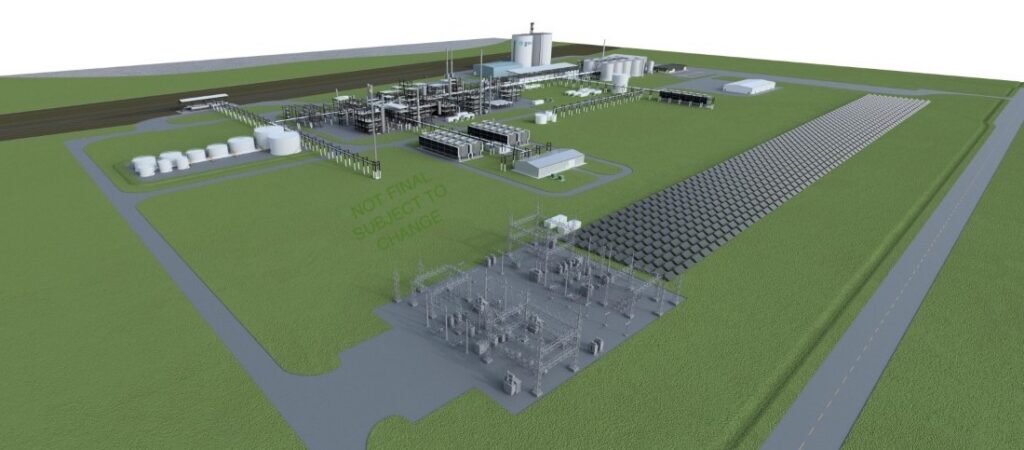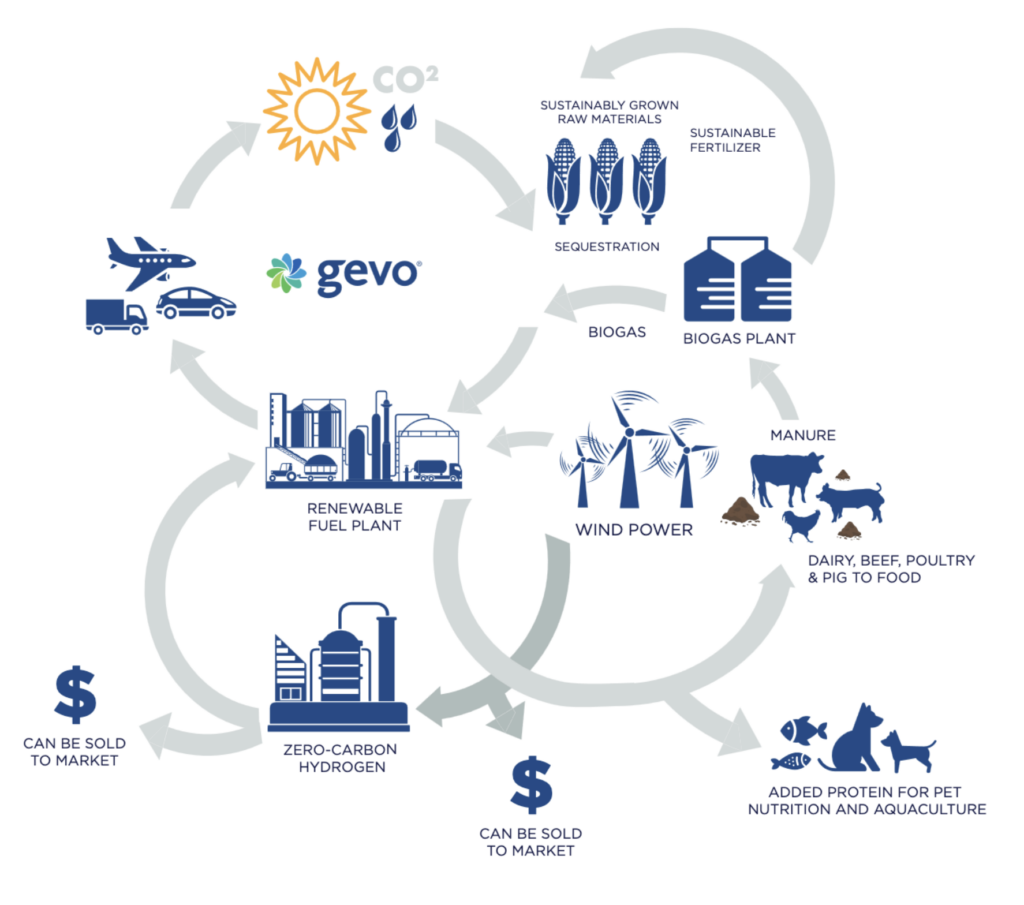Gevo announced the concept of ATJ Projects in early 2021, and the first of these projects is expected to build a plant to produce energy-dense liquid hydrocarbons using renewable energy and Gevo’s proprietary technology.
Gevo has purchased approximately 240 acres of land near Lake Preston, South Dakota, where it is currently developing its ATJ-60 Project. This site is attractive because of its abundant regeneratively grown corn supply, high-protein feed demand, rail transportation, and renewable energy potential.
The ATJ-60 Project is expected to transform renewable energy into energy-dense liquids.
The ATJ-60 Project is expected to transform renewable energy into energy-dense liquids. The name “ATJ-60” is a reference to the alcohol-to-jet process we are using, to the tune of an expected 60 million gallons per year produced.
- Fuel products are expected to be a drop-in
- Includes value from agricultural practices, energy sources, and impact on supply chain
- Fuels produced from agricultural residue, a component of abundant corn feedstock, while producing high-value protein products and corn oil
- Behind-the-Meter renewable wind power will be used for electricity needs
- Green Hydrogen is expected to be made from water and renewable electricity
- Optionality to bring additional renewable natural gas into the program

How Will the Gevo ATJ-60 Project Work?
Gevo designs our entire business with efficiency in mind from the beginning, and it has an impact on everything we do. We expect to transform renewable energy sources into a drop-in, fungible commodity that can be stored and transported globally and easily. By focusing on carbon value, Gevo is set up to maximize the value of renewable energy sources. When we focus on that goal, everything we do in developing our plans, building our facilities, working with airlines, fuel companies, farmers, and other partners, becomes focused on sustainability.

Producing Renewable Fuels and More
Gevo expects that the ATJ-60 Project would have the capability to produce approximately 60 million gallons per year (MGPY) of liquid hydrocarbons in the form of jet fuel and renewable gasoline. These fuels are expected to drop in to the supply of aviation fuel, meet or exceed all the ASTM standards for jet fuel, and are approved to be blended with petroleum-based jet fuel up to 50 percent.
In addition, the ATJ-60 Project is expected to produce at least 695,000 tons per year of high-value nutritional products, as well as approximately 34 million pounds of corn oil.
Seventy percent of the electricity needed to run the plant is expected to come from wind power. The project may also obtain renewable natural gas (“RNG”) using manure from dairy or beef cows.
The Circular Economy Is the Key

Regeneratively grown feedstocks will make the difference. That’s why we intend to put our energy into improving agriculture while putting nutrition into the foodchain.
Gevo’s unique systems approach will be focused on getting the most out of our regeneratively grown plant-based feedstock to improve global food supply as well as improve efficiency for transportation. We strive to source corn feedstock from farmers who use regenerative agricultural practices, then multiply the effect by separating the protein and starch out of every kernel.
- Nutrition first, Gevo will produce more protein products compared to renewable fuels, on a tonnage basis
- Farmers succeed, growing their operations and employing more people
- Better economic conditions help rural communities thrive
- Farms participate in growth of renewable energy infrastructure
- Every acre produces both food and fuel
We Start with Regenerative Agriculture

According to Regeneration International, regenerative agriculture is “a holistic land-management practice that leverages the power of photosynthesis in plants to close the carbon cycle, and build soil health, crop resilience, and nutrient density.” Regenerative agriculture is particularly effective with corn:
- Stalks grow to more than six feet tall each year, drawing carbon from the atmosphere
- Stalks and leaves store carbon
- Root structure stores carbon
- Low-till and no-till farming techniques leave roots, stalks, and leaves in soil
- Organic matter in soil helps water retention
- Soil biodiversity helps sequester carbon more deeply
ATJ-60 Project Will Have Local Impact on Employment
- Expected to create approximately 1,500 construction jobs over three years
- Expected to create ~460 full-time jobs—90 full-time at ATJ-60, 15 at wind farm, and an additional 355 jobs

